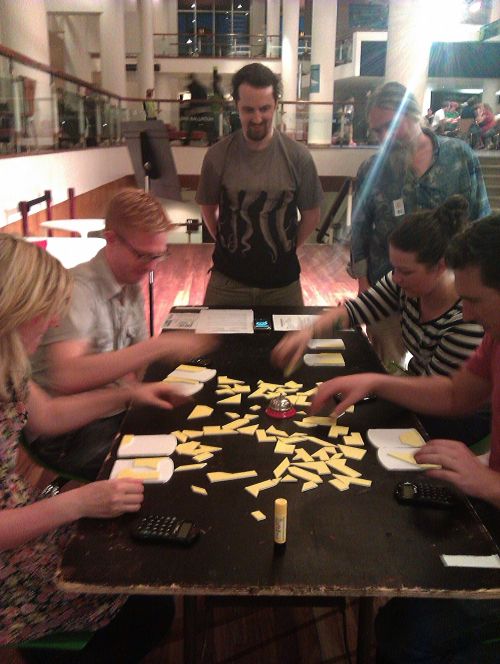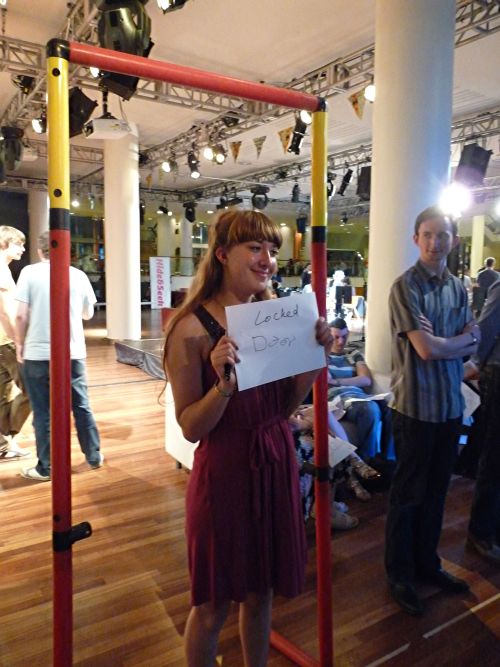Tim Link
As noted last time (which was, admittedly, a while ago), Octopus Fruitbat put on Competitive Sandwich Making at the Hide & Seek Weekender games event, with help from Phil and Deb. I wrote about it here, and it looked a bit like this:
Thing I Bought And Would Recommend: Fun Club
The webcomic “Cat and Girl” was originally recommended by me in Things 1, which I wrote so long ago the obscure Japanese game show video I linked to in the same edition has already spawned a UK version that in itself is now old news.
Cat and Girl is written by Dorothy Gambrell, who I’ve also mentioned in earlier Things as the author of Very Small Array, a sort of hybrid blog of data visualisation and cultural-critique.
What I’m trying to say is that Dorothy Gambrell is awesome, so when she makes a thing called Fun Club in which you buy a year-long subscription to receive monthly random things she makes, you should probably check it out. 2012 was the first year it ran, and included a diary for the year with complete-it-yourself personal data visualisations, a set of useful stickers that say ‘Bad Decision’ in large block capitals, and some postcards featuring combination bread/sausage creations she baked in the style of the electrical standards of various countries:
So if you like that sort of thing, you should probably sign up for the 2013 edition.
Video: The Spider
Here we see the fascinating results of confronting a spider with the Mirror Test. If you’re scared of spiders, you may find it worth gritting your teeth through to around 46s when the spider completely freaks itself out [note, the audio is not essential, but is quite apt]:
Link: Books by Robots?
I’m assuming that it’s some combination of things like Amazon Mechanical Turk and the recent developments in economical on-demand book printing that mean you can now buy this amazingly specific book on Amazon:
Imagine you were an aspiring bagel maker. How could you possibly resist such a perfectly titled book?
Well, you might be suspicious. If there’s a book like this for bagel-makers, how many other careers have they covered? Do a bit of searching, and you find further unlikely variations on the theme, including books on how to land ‘Top-Paying’ jobs as a Binding Worker, Conservation Scientist, or Roughneck.
At this point, you might assume they are all essentially the same book with generally applicable advice on careers, interviews and the like, just with different covers.
But no!
Each book has a different author (so must be different), and thanks to the ‘look inside’ feature, we can see that the bagel book includes information specific to the baking industry:
We can’t be certain how much of this content was harvested automatically, but based on current trends I expect to see robots of the future writing arbitrarily many of books in this vein, and whole ecosystems of robot arbitrage emerging in the second-hand market for those books. Don’t let anyone tell you the future isn’t bright.
Game: Frog Fractions (via Dom)
This is a really fascinating flash game which you should definitely play if you like… games. I don’t want to say too much about it, but be advised that there is more to it than first meets the eye. Much more.
Set aside some time to improve your life by playing Frog Fractions.
-Transmission Ends













